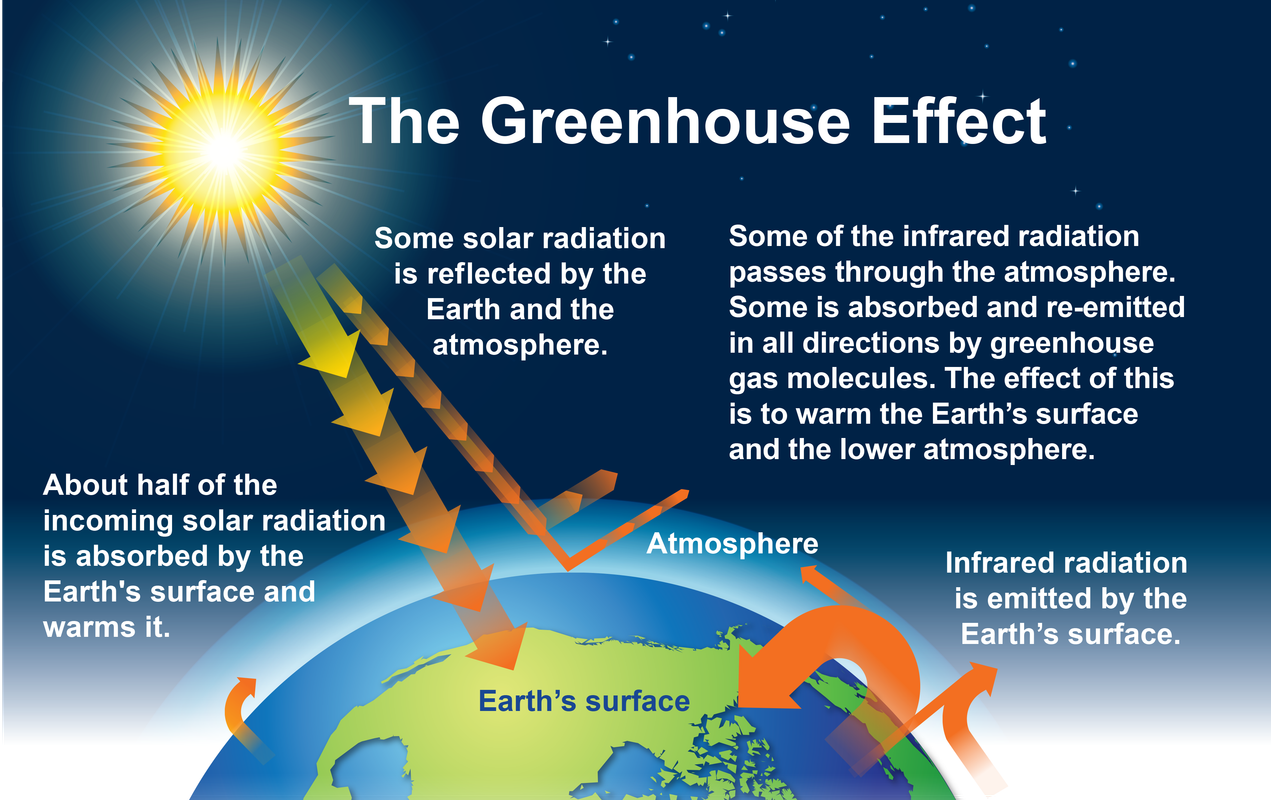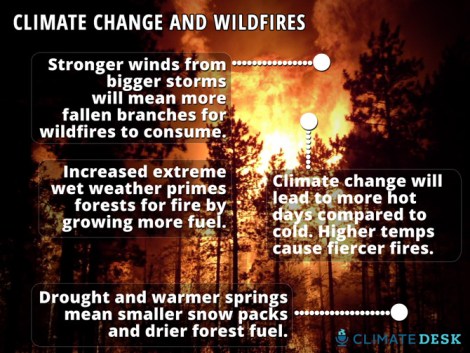science facts vs biblical events
Forest fires increase carbon emissions, when is global you'll get the greenhouse effect.
The trapping of the sun's warmth in a planet's lower atmosphere is due to the greater transparency of the atmosphere to visible radiation from the sun than to infrared radiation emitted from the planet's surface.

The greenhouse effect occurs when greenhouse gases in a planet's atmosphere cause some of the heat radiated from the planet's surface to build up at the planet's surface. This process happens because stars emit shortwave radiation that passes through greenhouse gases, but planets emit longwave radiation that is partly absorbed by greenhouse gases. That difference reduces the rate at which a planet can cool off in response to being warmed by its host star. Adding greenhouse gases further reduces the rate a planet emits radiation into space, raising its average surface temperature.

Climate change is messing with the seasonal rain and snow patterns across the Western U.S., too—one of the other factors that control fire risk. Springtime often comes earlier. Snowpack, which usually provides about 30 percent of the state’s summer water needs, is melting earlier in the year, giving the plants and soils longer to dry out.
Wildfires make the sky red because the smoke particles from the fires allow sunlight's longer wavelength colors like red and orange to get through while blocking the shorter wavelengths of yellow, blue, and green
1. The smoky haze left behind by the fires changes the way sunlight is scattered in the sky
2. During wildfires, skies are red because absorption by smoke particles is dependent on wavelength, but scattering is independent of wavelength
3. The wildfire smoke has added a lot more particles in the air, which amplifies this process, thus causing the sun and sky to appear a dark, red-orange color.

Volcanic eruptions can have global effects, including
Circulation of gases and solids injected into the stratosphere around the globe for weeks.
Impact on global climate, reducing the amount of solar radiation reaching the Earth's surface, lowering temperatures in the troposphere, and changing atmospheric circulation patterns.
Volcanic eruptions can also cause disastrous loss of life and property, especially in heavily populated areas. Between 1998-2017, volcanic activities and wildfires affected 6.2 million people and caused nearly 2400 deaths.

Global pandemic cov-19 and the list goes on, man adds the atmosphere for Christ to bring selective judgment
What is the likelihood of another global pandemic like COVID-19?

living in a bubble
Forest fires increase carbon emissions, when is global you'll get the greenhouse effect.
The trapping of the sun's warmth in a planet's lower atmosphere is due to the greater transparency of the atmosphere to visible radiation from the sun than to infrared radiation emitted from the planet's surface.

The greenhouse effect occurs when greenhouse gases in a planet's atmosphere cause some of the heat radiated from the planet's surface to build up at the planet's surface. This process happens because stars emit shortwave radiation that passes through greenhouse gases, but planets emit longwave radiation that is partly absorbed by greenhouse gases. That difference reduces the rate at which a planet can cool off in response to being warmed by its host star. Adding greenhouse gases further reduces the rate a planet emits radiation into space, raising its average surface temperature.

Climate change is messing with the seasonal rain and snow patterns across the Western U.S., too—one of the other factors that control fire risk. Springtime often comes earlier. Snowpack, which usually provides about 30 percent of the state’s summer water needs, is melting earlier in the year, giving the plants and soils longer to dry out.
Wildfires make the sky red because the smoke particles from the fires allow sunlight's longer wavelength colors like red and orange to get through while blocking the shorter wavelengths of yellow, blue, and green
1. The smoky haze left behind by the fires changes the way sunlight is scattered in the sky
2. During wildfires, skies are red because absorption by smoke particles is dependent on wavelength, but scattering is independent of wavelength
3. The wildfire smoke has added a lot more particles in the air, which amplifies this process, thus causing the sun and sky to appear a dark, red-orange color.

Volcanic eruptions can have global effects, including
Circulation of gases and solids injected into the stratosphere around the globe for weeks.
Impact on global climate, reducing the amount of solar radiation reaching the Earth's surface, lowering temperatures in the troposphere, and changing atmospheric circulation patterns.
Volcanic eruptions can also cause disastrous loss of life and property, especially in heavily populated areas. Between 1998-2017, volcanic activities and wildfires affected 6.2 million people and caused nearly 2400 deaths.

Global pandemic cov-19 and the list goes on, man adds the atmosphere for Christ to bring selective judgment
What is the likelihood of another global pandemic like COVID-19?

living in a bubble





